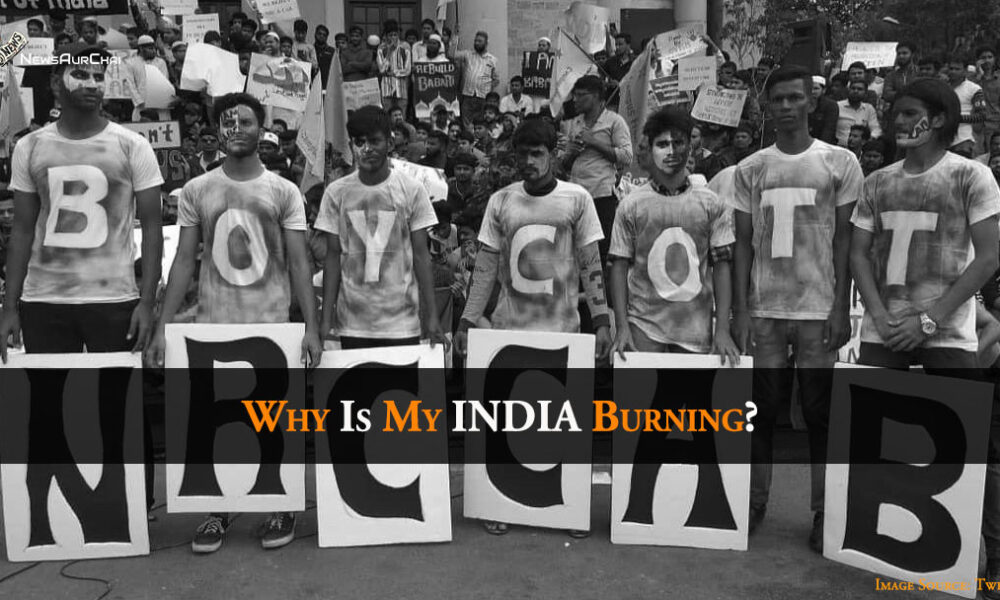A few days ago, the United States Postal Service informed me that they were not able to locate my passport. The passport was supposed to come back to me from the Canadian Visa Application Center and is now lost in transit. They profusely apologized for an hour, but every time I asked for assurance, they had nothing to say. When I got the call, the first thing that hit me was fear. I was scared that without a passport, I don’t have an official identity in the United States, and considering the current atmosphere, anything can happen to me. I had no means to prove my citizenship or my presence in the United States without a passport. So, I called the Indian Embassy in Washington, DC and asked them for help. The government of India is as reliable in America as it is in India. They couldn’t help me, either. So, in the grips of fear of being deported or worse put into detention camps, I sat on the floor of my living room and cried for thirty minutes on the phone with my father.
I got my passport back the same day, and everything turned out to be fine. However, in those few hours, my world had turned into hell. The moment has passed, but the feeling lingers. After all of this cleared up, I asked myself why was I scared? Why is this identity so important? And if I weren’t a Muslim, would this still be as big a problem?
In Assam right now and in most of India, minorities are constantly living in the same fear– the fear of losing identity, which only matters when your identity is connected to your very existence. So, as an Indian Muslim, I shouldn’t be bothered by this. This act isn’t about me, I will be safe, my family will be secure; that is only because I am privileged enough, I have enough money and connections to save myself. My anger and the country’s protest are for those who are not as privileged as others; for people who come into my home every day to cook for me, drive for me and clean for me. Am I not supposed to be worried about them just because I am safe? How did we get here as a society? Where is this segregation coming from? What is the point of all this? One word answer to all these questions— land. Historically, we have fought the bloodiest of wars over this resource. However, every time we do it again, we forget what comes after these wars.
A war is raging right now on the street of India, specifically Northeast India; it is happening for two of reason, one related to land and the other concerning identity. How can we distinguish between Indian and Illegal immigrants? This is where the Citizenship Amendment Act comes in, the CAA is flawed, and it is flawed on a very fundamental level.
The preamble of the Constitution of India states India a secular nation, a word added after the 42nd Amendment Act. Apart from that, Article 14 of the Constitution stipulates that no law can discriminate based on religion. Then why are we in a situation where this discriminatory bill is now a law? The answer is simple: as a generation, we have failed as empaths. We believe that if something isn’t affecting us directly, it is not affecting us at all. What we fail to see is that it is not affecting us right now. Dissent is an integral part of democracy, and as the very fabric of democracy tears, we sit in our rooms and object to the students on the street. Why are they protesting? Because they read. Why are they violent? Because they were provoked. This law enables the government to make more laws, and we are letting them get away with it.
If enough people, voice out, will the world finally listen? My opinion about the CAA is clear, it is discriminatory, and even if it doesn’t affect me today, it affects my countrymen. It affects the democracy and the constitution I am so proud of. It affects the laws that protect me, and for that, I will protest. I will do my share, then one day when the world will look at us and ask where you were when your country was burning, I will say I was not a silent spectator.
I urge everyone who is interested in knowing what is happening to read about the National Register for Citizen in Assam, the Assam Accord and the 42nd Amendment Act. These three things will help you make up your mind about the situation.
The Holocaust Memorial in Boston, Massachusetts has a confession poem engraved on it that reads something like this—
First, they came for the socialists, and I did not speak out—
Because I was not a socialist.
Then they came for the trade unionists, and I did not speak out—
Because I was not a trade unionist.
Then they came for the Jews, and I did not speak out—
Because I was not a Jew.
Then they came for me—and there was no one left to speak for me.
The poem highlights the cowardice of the German intellectuals who watched silently as Nazi Germany came to power. They witnessed what was happening around them without protesting, showing dissent, asking questions or reading what was written in the pages of the law.
